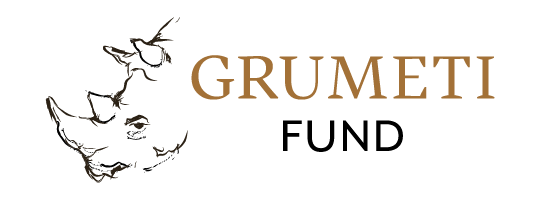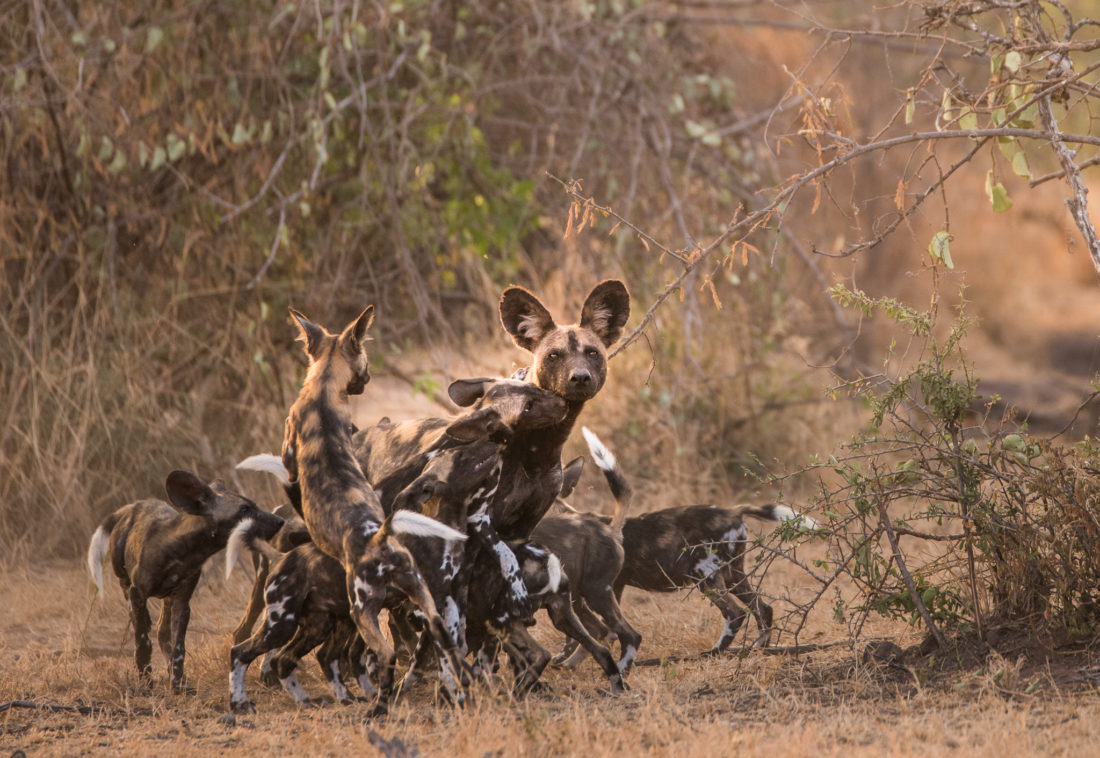Wild Dog Report
In recent years there has been a wild dog re-introduction program taking place within the greater Serengeti ecosystem. Under the direction of the Tanzanian Wildlife Research Institute (TAWIRI), this endangered carnivore has been returned to the Serengeti national park and surrounding game reserves, whilst simultaneously saving the beleaguered canids from neighboring areas, such as Lake Natron, where they were being persecuted for killing livestock. Over 100 wild dogs have been successfully translocated within the wider Serengeti since the Serengeti wild dog conservation project’s inception.
In addition to the Paul Jones Family Foundation providing the lion’s share of the funding for this groundbreaking wild dog translocation project, the Grumeti Fund has contributed to the program whenever and wherever possible, including the provision of logistical support, camera traps and sightings updates to the TAWIRI project team. After all, we have a keen and vested interest in how the reintroduced wild dogs are faring within the western Serengeti. Of all the translocated packs within the greater Serengeti ecosystem, the local Nyasiori pack was the most successful and, after producing several litters of pups, the pack had reached an impressive 25 dogs in late 2017. Everyone was thrilled with their progress and the dogs seemed to be thriving.

It is with great sadness that we must report the untimely death of at least 19 members of the Nyasiori pack in December 2017. The wild dogs, a species known for their cooperative hunting techniques and unique social bonds, have all died from canine distemper: a virulent and deadly virus contracted through contact with infected domestic dogs – either on the boundary of the protected area or from dogs that have illegally entered into the protected area with poachers to hunt plains game. This is a huge loss for Grumeti, for TAWIRI, and for the greater Serengeti ecosystem.
Situations where domestic animals are illegally entering the protected area, which is most likely the cause of the Nyasiori wild dogs’ demise, are extremely difficult to overcome. Poachers entering the unfenced game reserve and national park with dogs used for running down and hunting plains game, which the poachers then sell as bush meat, is a mammoth problem that afflicts most protected areas in East Africa. In the Serengeti alone the bush meat trade is enormous with hundreds of thousands of animals being illegally killed on an annual basis as part of a multi-million dollar illegal bush meat industry. The sudden death of the Nyasiori wild dogs from diseases spread by domestic poaching dogs is a by-product of the larger issue of the illegal wildlife trade.
The untimely death of this thriving wild dog pack really encapsulates many of the larger issues facing African conservation organizations today. It reminds us to deploy and use our limited resources as effectively as possible with various departments within the Grumeti Fund to work together to create cross cutting solutions to a multi-faceted issue. It reminds us that forming partnerships to ensure the safety of the fauna and flora – not just within our 350,000 acre concession area but across the entire ecosystem (and beyond), is critical.
Conservation is complex. Riddled with variables and uncertainties that are often difficult to predict and control, success demands the development of strategic partnerships, greater collaboration, implementation of high-tech solutions, sustainable community development programs, and requires the passion and commitment of dedicated teams of professionals on the ground. The loss of Nyasiori pack (representing an estimated 20% of the reintroduced wild dog population) demands that the Grumeti Fund face the escalating challenges along the human-wildlife interface head on in order to ensure the long-term protection of the Serengeti for future generations.

Join us in working to find solutions to protect wild dog and other endangered species.




